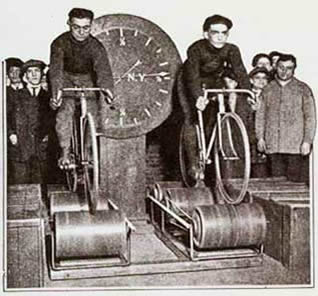FabLabLog
- principles and practices, project management (Jan 23)
- computer-aided design (Jan 30)
- computer-controlled cutting (Feb 6)
- electronics production (Feb 13)
- 3D scanning and printing (Feb 20)
- electronics design (Feb 27)
- molding and casting (Mar 6)
- embedded programming (Mar 13)
- computer-controlled machining (Mar 20)
- input devices (Mar 27)
- composites (Apr 3)
- interface and application programming (Apr 10)
- output devices (Apr 17)
- networking and communications (Apr 24)
- mechanical design, machine design (May 1)
- final project (May 8 - May 29)
Hax Philosophy
Manufacturing industry’s purpose is to design, make and sell objects that people want. It endeavours to meet people’s needs. Mass produced items attempt to meet the majority of those needs, most of the time, by finding common ground in many people’s requirements and expecting customers to compromise to some extent in return for an economic price. Developments in manufacturing technology are increasingly challenging the paradigm of the economic batch size. This, combined with the connection of millions of people by the internet, heralds an age of mass customisation. It is becoming possible to produce bespoke goods at the cost and quality of mass produced items.
Hax’s purpose is to explore the opportunities that these technology improvements promise in order to provide everyone with manufactured goods that fit their needs precisely. These goods will have the quality, safety and availability one would expect of mass produced items and will be priced comparably. They will reward the customer who is willing to involve themselves in their design and production with the satisfaction of creating something unique and allow others to appreciate their creativity and skill.
Society in general will benefit by the creation of incremental wealth. The ability to make a profit will determine whether goods manufactured in this way are valued. Profit will also provide the motivation for individuals and organisation to try this new approach. Fewer resources should be wasted as this hax philosophy lends itself to the recycling, refurbishment or upgrading of existing items as well as the design and production of completely new ones. Reduced batch sizes will improve the economics of producing locally, near the point of consumption and will thus reduce transportation waste and bring employment to local communities.
In order for the maximum number of people to be involved in the design and manufacture of their own products, the tools needed will have to be easy to access and low cost. The skills required will have to be acquired readily. Education and training will be provided to help learn them. Teaching will be needed, not only in schools, but also in the community and available remotely. The equipment to make these products will be sited locally and readily accessible to those with the skills and desire to use it. As people will be making objects they really want, the equipment and materials available will have to be suitable for producing objects of the quality expected of mass produced items. The desire to produce unique, innovative products will connect people across the globe. People will use cheap, effective methods to collaborate in order to innovate. Hax products designs will be openly available for anyone to copy, improve upon or personalise. All of the technology, tools and methods to make this a reality are available today. Hax will show how they can be organised to be effectively to meets people’s needs.
I will develop these ideas as I progress through the FabLab course. I will learn the tools that will be needed to make the hax concept a reality. I will attempt to organise these tools and others to provide a proof of principle of the hax business model. I am to apply this in areas of particular interest to me: cycling, furniture and house design.
FabLab Project

My FabLab project will be the design and manufacture of a cycle trainer with virtual reality capabilities. I am a keen cyclist and in the winter in the UK it is often too cold and dark to go cycling outside in safety. For many years cyclists have trained in the winter on rollers and turbo trainers (resistance devices connected to the rear wheel of a static bike). There has even, in the past, been a branch of cycle sport devoted to racing on rollers.Two or more bikes were placed on rollers side by side, and the rollers are connected to a timing system. Roller racing was popular in 1950s Britain, often preceding films at the cinema or taking place in between dances at dance halls.
I want to make a modern roller trainer with which it will be possible to train or race with other riders connected via the internet. This is a product that I want and which I am sure is of interest to other riders keen to alleviate the tedium of winter training.
The design and manufacture of my cycle trainer will also require me to acquire the skills being taught in the FabLab. I will need to produce a design on CAD. Large frame components will be CNC machined. Smaller components will be moulded or 3D printed. I will need to develop and make a wireless device to pick up wheel speed, cadence and power data from my bike. I will need to develop software and interfaces to allow virtual interaction over the internet. I believe this to be challenging but ultimately achievable.